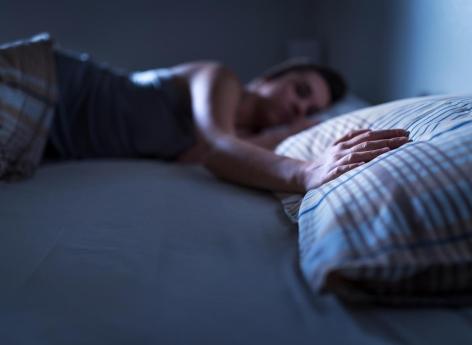According to a survey, more than a third of Americans no longer sleep with their partner.

Monopolized blanket, different schedules, snoring, frequent movements… For many reasons, many couples decide to sleep in separate spaces. This is what we call “sleep divorce” or “sleep divorce” in French. According to an investigation from the American Academy of Sleep Medicine (AASM), many Americans report occasionally or regularly sleeping in a different room from their partner.
More precisely, almost half (43%) of millennials (i.e. adults born in the 1980s or 1990s) do not share the same bed as their spouse, followed by a third (33%) of Generation X people, 28% of Generation Z and 22% of Baby Boomers. The results showed that it was men who used the sofa or spare room more frequently, with almost half (45%) saying they did not sleep with their partner occasionally or regularly, compared to a quarter (25%). ) women.
Sleep separately to sleep better
“We know that insufficient sleep can worsen mood and that people who are sleep deprived are more likely to argue with their partner. There may be some resentment towards the person causing the sleep disruption , which can negatively impact relationships. A good night’s sleep is important for health and happiness, so it’s no surprise that some couples choose to sleep separately for their overall well-being. said Dr. Seema Khosla, pulmonologist and member of the AASM, in a press release. According to the specialist, research has shown that lack of sleep can reduce empathy levels.
Snoring, a common symptom of sleep apnea
According to the AASM, “sleep divorce” simply means that people prioritize their sleep. “However, if it is one partner’s loud snoring that leads to separate sleeping spaces, you should encourage them to see a doctor about obstructive sleep apnea. This applies to both men than women who snore”said Dr Seema Khosla. The specialist says that snoring is a common symptom of sleep apnea, which should be taken seriously. “When snoring is accompanied by choking, gasping, or silent pauses in breathing during sleep, this is a strong indicator of sleep apnea.”















